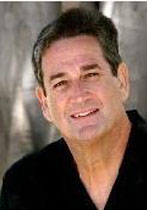By Rabbi Ben Kamin

MEMPHIS—He discovered something within himself to elevate his hard, quick journey (some say it was his deep love of the Gospel) and his uncommon vision. In truth, Martin Luther King, Jr. (born Mike King) lived a short, brutal life, filled with prison stays, bouts of depression, fear, and threats. Yet he sat with presidents and helped rewrite the Constitution of the United States—in particular, the 1964 Civil Rights Act (now questioned by the likes of Ron Paul) and the groundbreaking 1965 Voting Rights Act. Untold thousands of Americans, from every creed and one conscience, helped along the way—some with their blood. He was shot down 44 years ago on April 4, 1968—here at the Lorraine Motel in Memphis, Tenn. This is now the site of the National Civil Rights Museum, where I’ll have the privilege of launching my new oral history of this place on Wednesday.
He had very little time with his wife and children, never accumulated any personal wealth, fought his weight, cigarettes, and an unrelenting physical exhaustion. He was harassed by common criminals and by the FBI—an agency that once advised him to simply commit suicide. He was afraid of the dark jail enclosures into which he was cast so often. He positively knew that, in the end, somebody would shoot him. He was plagued by guilt and anguish, believing he had caused too many people danger and hurt by pushing them into the cause. He was ultimately reviled by many of his allies in the federal government, including President Lyndon B. Johnson, because he unilaterally stood up and took a strong moral position against the Vietnam War.
M.L. King, child of a domineering father, spent his adulthood as a prisoner of his own passions and skills. He was often as unhappy as he was grandiloquent. MLK once declared, “Oppressed people cannot remain oppressed forever. The yearning for freedom eventually manifests itself. The Bible tells the thrilling story of how Moses stood in Pharaoh’s court centuries ago and cried, ‘Let my people go!’” Over the hasty 13 years of revolutionary King’s Civil Rights Movement, 1955 to 1968, when he was murdered, the rather short, almond-eyed American visionary lived such a passage. The preacher would replicate Moses opposite many Pharaohs—from Birmingham police chief Eugene “Bull” Connor to Alabama governor George C. Wallace to Chicago mayor Richard Daley, Sr. They were all Pharaonic stand-ins who assaulted King and so many brave Americans, from honchos to housewives, who withstood their succession of fire hoses, state segregation laws, and polite agreements to ban black people from housing and schools and a share in the national journey.
Neither Martin nor Moses arrived to the Promised Land. But at least Moses lived to a ripe, full age. Imagine if “Mike” King had never been born—we’d still be wandering in the desert of legal segregation and social disgrace. But there would be no legislation in place to blunt the human tendency to hate.
*
Rabbi Kamin is a freelance writer based in San Diego. He may be contacted at ben.kamin@sdjewishworld.com